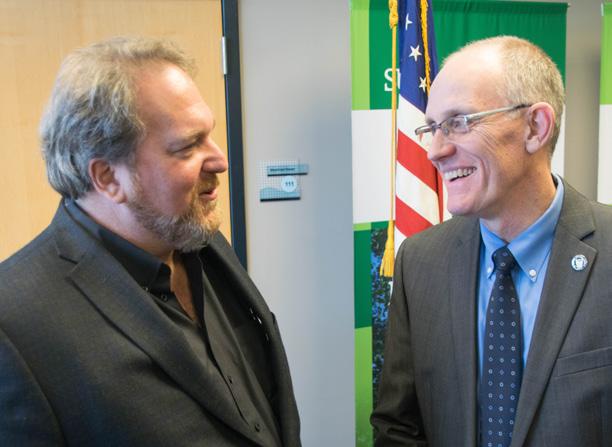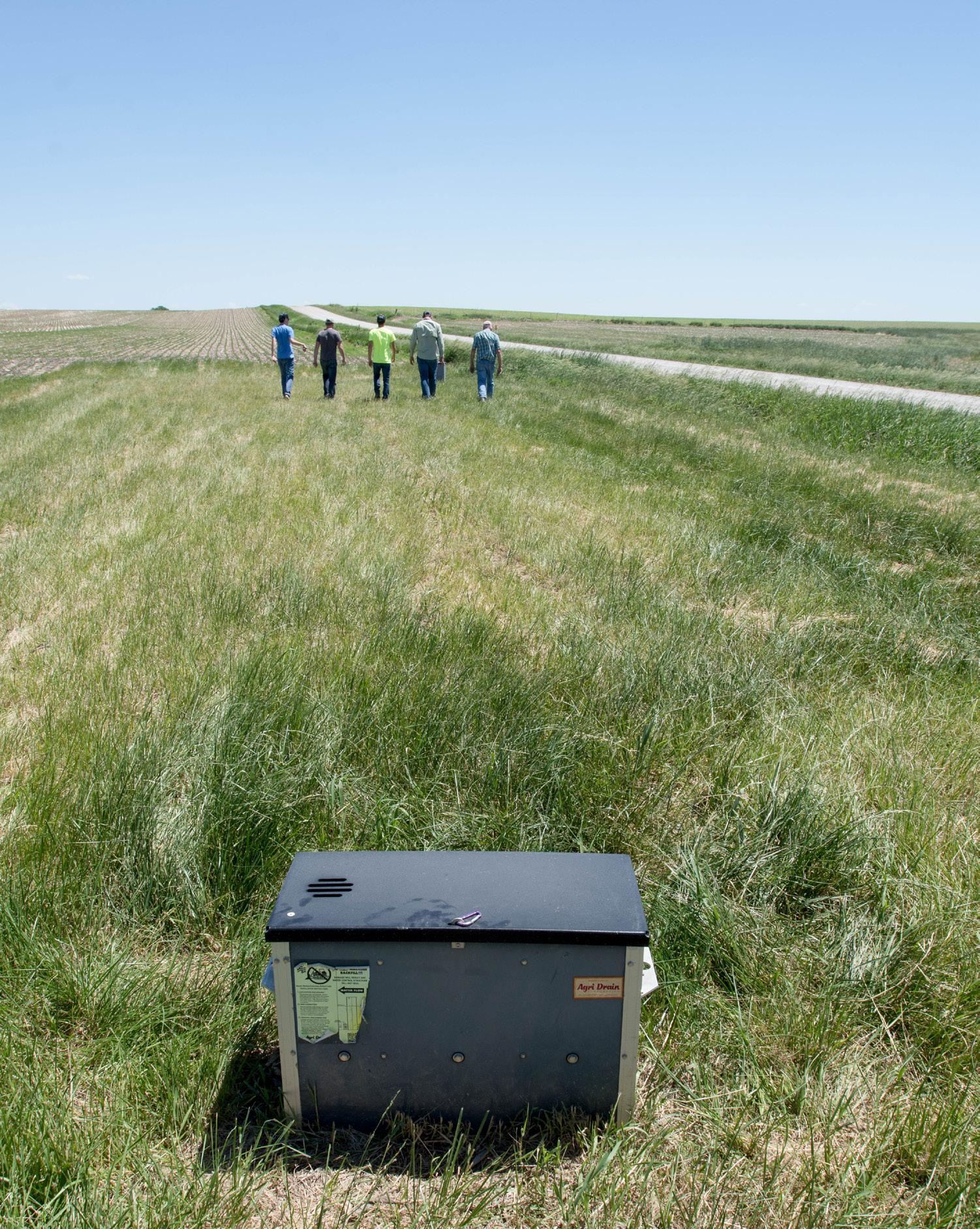
4 minute read
National Accolades
CEDAR RAPIDS RECEIVES U.S. WATER PRIZE
BY CAROL BROWN
The U.S. Water Alliance presented the 2019 U.S. Water Prize to the City of Cedar Rapids for its leadership in water quality improvement. It was one of six recipients recognized at the annual One Water Summit held in Austin, Texas, in September.
“I believe there is no higher honor than the U.S. Water Prize,” says Steve Hershner, Cedar Rapids Utilities Director, during his acceptance speech. “One Water ties our community’s industry and agriculture together. This is truly an Iowa award.”

Roger Wolf & Steve Hershner
The city has been the leader for the Middle Cedar Partnership Project (MCPP) and Hershner was acknowledged at the ceremony for his dedication to the project.
“Steve likes soil health, which can’t be said of many utility directors,” says Radhika Fox, CEO of the U.S. Water Alliance, while presenting the award.
The Middle Cedar Partnership Project
The Middle Cedar Partnership Project connects the City of Cedar Rapids and the water utility with upstream farmers and landowners. The goal is to increase farming conservation practices that reduce nitrogen and phosphorus loss to the Cedar River. With more conservation practices in place upstream, water quality will improve downstream as it reaches the residents of Cedar Rapids.
The MCPP helps incentivize the use of cover crops, installations of bioreactors and saturated buffers as well as targeted nutrient management, all of which reduce nutrients entering rivers and streams. As part of the MCPP, the city helps guide watershed improvement plans and informs farmers and other stakeholders on the need for holistic water management. “Cedar Rapids is being very proactive about helping farmers upstream,” says Nick Meier, who farms near LaPorte City. “The city has been very supportive of us farmers. We need more cities like Cedar Rapids to work together with us for cleaner water.”

Nick Meier
Joseph L. Murphy/Iowa Soybean Association
Meier is on the advisory board for the Miller Creek Watershed Quality Improvement Project, a sub-watershed in the Middle Cedar. He’s been able to add cover crops to all his acres because of the funding incentives of the project.
With help from other research projects, he has installed a saturated buffer and a bioreactor on his farmland.
At least a dozen partners are working on the MCPP, including the Iowa Soybean Association (ISA), which has been part of the project since its beginning in 2015. It involves farmers and landowners, soil and water conservation districts, government and non-government organizations, and others, all collaborating to improve water quality by using conservation practices on farmland upstream from the community.
“This national recognition of Cedar Rapids and the MCPP highlight the importance of collaboration,” says Roger Wolf, ISA director of Environmental Programs and Services. “The project provides value to both farmers upstream and Cedar Rapids residents downstream, which is one reason it has been successful.”
The One Water Summit brings together a cross-section of people who work for public utilities, wastewater and flood management, agriculture, the arts and more. It serves as a venue to work on solutions for improved water equity, safe drinking water and innovative water plans sustainable for urban and rural usage across the country.
The U.S. Water Prize was given in six categories to honorees who inspire others to create a more sustainable water future for all. For more information on the U.S. Water Prize and the honorees, visit the U.S. Water Alliance website at http://uswateralliance.org/onewater/us-water-prize-2019.

Nick Meier has installed edge-of-field conservation measures like bioreactors to improve water quality leaving his farm.
Joseph L. Murphy/Iowa Soybean Association
IOWA PLAYS PROMINENT ROLE AT ONE WATER SUMMIT
They say distance makes the heart grow fonder. This popular saying applies to Iowa and it's actions to improve water quality. Some in Iowa grumble that the state isn't moving quickly enough regarding water quality improvement. Elsewhere, the sentiment quickly changes.
“Iowa is busy cleaning up water,” says Preston Cole, Secretary for the Wisconsin Department of Natural Resources. “That’s the kind of attitude we all have to have. It’s good to know our neighbor is so passionate about this goal.”
Cole’s comment was one of many heard at the One Water Summit held recently in Austin, Texas. Speakers from across the country referenced Iowa and the positive work being done in the state to improve water quality. Roger Wolf, director of Environmental Programs and Services at the Iowa Soybean Association (ISA), was mentioned numerous times as a leader for soil health.
“Roger was promoting soil health before soil health was cool,” says Mark Muller, director of the Mississippi River program at the McKnight Foundation. Muller moderated a breakout session that included Steve Hershner, Cedar Rapids Utilities Director, as a panelist along with speakers from California, Washington, D.C., and Oregon.
The Iowa delegation — one of 44 at the summit — included 26 people representing government and non-government organizations, educational institutions, utilities and watersheds.
“I believe the Iowa delegation can advance the One Water movement by working to get water on everyone’s agenda regardless of who they are,” says Hanna Bates, Iowa delegate and program coordinator at the Iowa Water Center. “In the end, it is all one water moving from Iowa down the Mississippi River. It is important that we are inclusive to those who need a seat at the table.”
Contact Carol Brown at cbrown@iasoybeans.com.










